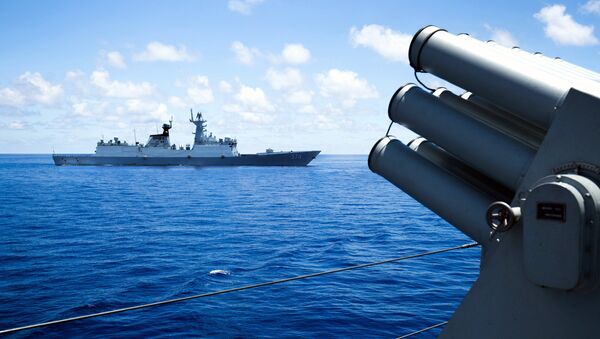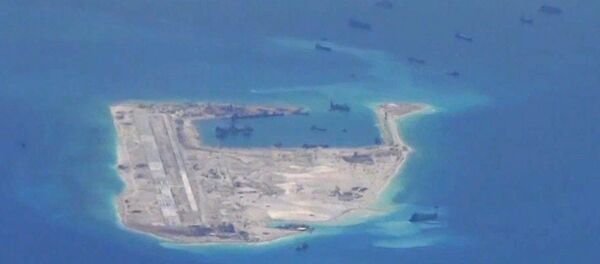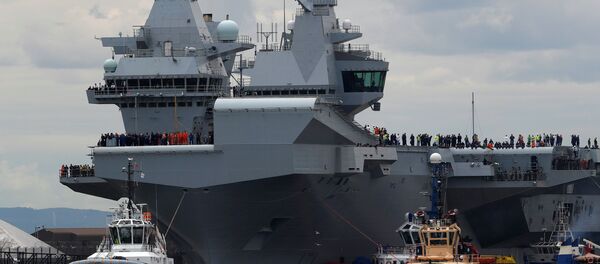However, Beijing reportedly threatened to attack Vietnamese positions in the Spratly/Nansha Islands of the sea if an oil discovery operation led by Spanish oil firm Respol was not called off on July 15.
This incident clearly shows that the tensions that arose after the abolition of joint Chinese-Vietnamese exercises this June are still quite strong.
Furthermore, US President Donald Trump has reportedly approved a plan to give the US Navy more freedom to carry out patrols in the South China Sea.
In order to make sense of what exactly is going on in the South China Sea, Sputnik spoke with an expert at the Center for Strategic Research, Anton Tsvetov.
“Recently, the US media reported that Donald Trump approved a plan of Defense Minister James Mattis to conduct operations on freedom of navigation. If the information is correct, these operations will be held on a regular basis, rather than being approved each time by the National Security Council,” Tsvetov said.
This move is a clear sign that the US is planning on stepping up operations in the South China Sea and, according to the expert, there is another player on the horizon that is slowly nearing the dispute: the United Kingdom.
The UK’s modern HMS Queen Elizabeth aircraft carrier is the largest ship built for the UK Royal Navy and it is currently undergoing tests.
The vessel should be approved by the navy by the end of 2017. The second ship, the HMS Prince of Wales, is currently being fitted in a Scottish shipyard.
Meanwhile, China continues to strengthen relations with Roderigo Duterte. During a visit to Manila, China’s Foreign Minister Wang Yi said that the joint mining of minerals in the South China Sea, which, according to the Philippine president, may begin as early as this year, will become a model for the settlement of territorial disputes.
“Nevertheless, experts who follow the activity of China on the controlled structures in the South China Sea believe that the Chinese military facilities on the ‘big three’ [Subi, Mischief and Faerie Cross Reefs] are already giving it unprecedented control over the heart of the disputed water area,” Tsvetov said.
Perhaps the most harmless way to struggle for influence in the South China Sea was chosen by Indonesia, announcing a new name for the section of the sea crossing with the Indonesian exclusive economic zone.
The North-Natun Sea now complements the list, which already has the West Philippine and Vietnamese East Seas in them.
“In other words, nothing good is happening in the South China Sea,” Tsvetov said.
He further said, “So far, neither side has demonstrated the ability to perceive the interests of its counterparties and move away from radical positions on the question of sovereignty.”
Tsvetov also noted that currently this sea is not jam-packed, but considering the current pace of naval modernization of various parties involved soon it will not be so easy to coexist for everyone in the South China Sea.
“This increases the risk of an accidental conflict,” the expert concluded.





